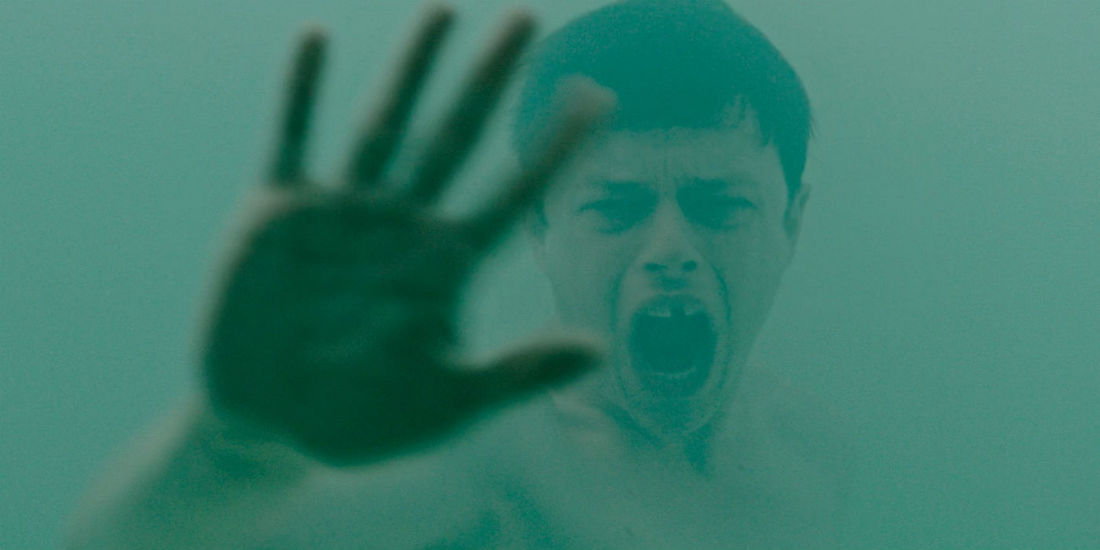Gore Verbinski leaves his viewers with an overwhelming sense of sickness in his latest feature, A Cure for Wellness. He, along with writer Justin Haythe, pull us into this world where wellness is a lie, but everyone is sick, and they manage to deeply unsettle viewers in the process with an end that rattles the bones.
We are introduced to the stunningly visual world of the film as it opens, looking up at the shadowy towers of New York City: the city is dark and murky, almost taking on a grayish-green sickly hue, with an ominously slow-moving and steady camera. We see an overworked businessman suffer from a heart attack, which immediately sets the tone for the film: something is off about this dense and depressing world.
Soon thereafter, we meet Lockhart (Dane Dehaan), a 20-something yopro with a healthy amount of ambition and an ego to match. The company (some Wall Street money tyrant) that he works for is about to undergo a merger, but there are some irregularities in the books and they need a scapegoat; therefore, they send Lockhart to the Swiss Alps to retrieve Pembroke, the company's CEO, from a “wellness center” that he went to after suffering a mental breakdown. After arriving in Switzerland, bringing Pembroke back proves more difficult than he thought, and Lockhart becomes trapped in the uncannily too tranquil center.
The film is a slow burn, very gradually building up. You seem suspended in most of the second act, floating around (not unlike the septuagenarians of the center), knowing there is some direction that you're supposed to be going in somewhere, but not quite sure what that direction is or how you're going to get there. Verbinski builds upon the psychological aspect of this thriller well: he plants little moments and signs in that suspense of the second act where the audience grips the edges of their seats. We know Lockhart needs to leave, and we know that he knows it, too. We can feel the actual time passing, creeping by as we lose a sense of time in the story, just as the patients do. We feel that ever-desired-yet-maligned sense of dread, but it’s so subtle and expertly done.
The actors do incredibly well in enriching this ominous world. Mia Goth steals scenes away as Hannah; she is completely believable as a prepubescent teen and plays the uncanny innocence of the only child at the wellness center excellently. Jason Isaacs gives Volmer a quietly mysterious elegance. Dehaan somehow makes an entitled prick likeable. Lockhart is, after all, the character with which we're positioned; we have little else to root for, but like him, we know something is wrong and sinister behind the idyllic scenery of the center. We begin to lose trust in our window into the story, just as he begins to waver in trust of his own mind, as well. He’s determined to finish his task, and his entitlement leads him to believe that he'll get exactly what he wants. A bit of sad backstory and past trauma give him just enough motivation to pique his interests and suspend his fears for just a second and agree to treatment after he is interestingly diagnosed with the same disease as the rest of the center’s patients, a move that later proves to be fateful.
Even our antagonist is potentially just as interesting as any other main character. We just aren’t ever awarded the privilege of exploring this character deeply, or much at all, which is disappointing. We are mostly limited to Lockhart’s point of view, which isn’t necessarily a bad thing; it just ends up feeling like a missed opportunity to add dimension to a character that could do wonders with it. He’s like Colonel Hans Landa or Hannibal Lector: if Verbinski gave him a little more to work with, the character could just sing. It almost feels like a few hard cuts had to be made in the edit that ultimately subtracted from the gradual build and intricacy of the story. Adding to this point: Hannah’s plotline is somewhat underdeveloped. It needs a little more time and attention in order for the story to really gel at the end.
Of course, it all eventually comes to that inevitable head, and it’s just so right; it’s definitely psychological, yet incorporates just enough violence and shock-factor to provoke a truly earned visceral reaction in viewers. We get the sensation for which we’re looking, and then we’re left questioning our values, our trust, everyone. You walk out of the theater not sure of what you just saw, still suspended in the wading tank of the movie, and seeing the world as a little darker, a little more unwell.
Rating: A-

 RSS Feed
RSS Feed
